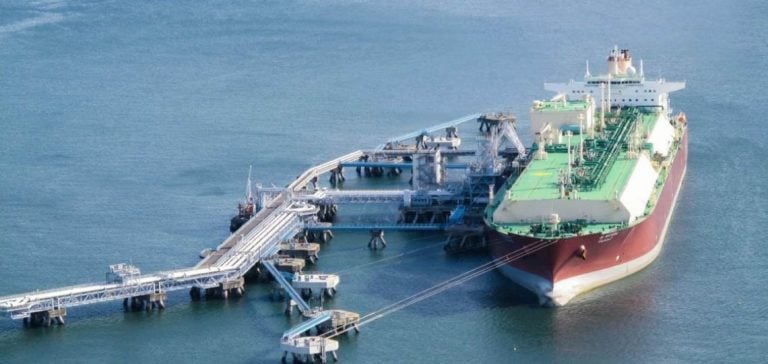East-West LNG arbitrage is strengthening as Asian demand outstrips European demand, offering traders increased opportunities to redirect cargoes to the Far East.
S&P Global Commodity Insights data reveal that wider price spreads and lower freight rates are supporting this dynamic.
The net return potential for transporting cargoes from the USA to Asia has shifted from negative to positive territory, indicating that traders can now achieve higher margins by diverting these cargoes.
Platts-assessed East-West arbitrage recorded a significant rise, reaching 1.7 cent/MMBtu on September 17, compared with a negative value of 23.9 cents/MMBtu on September 10.
This development is attributed to the cost of freight to deliver a U.S. cargo to the Northeast Asia region.
One trader commented,
“We’re seeing East-West arbitrage open up slightly; there’s a greater incentive for traders to bring cargoes east.”
This trend can be seen in cargo detour, such as that of the LNG vessel Rosenrot, which was redirected from Rotterdam to Tangshan, China.
Analysis of Asian demand and cargo flows
Growing demand in Asia is helping to absorb floating volumes, although analysts point out that Chinese demand could diminish due to JKM prices exceeding $13/MMBtu.
One analyst noted that Chinese buyers are cost-sensitive, which could limit their ability to sustain massive purchases.
Meanwhile, contango between October and November remains depressed in Northwest Europe, with the number of vessels at sea still above the five-year average.
This indicates that Asian demand is playing a crucial role in absorbing surplus volumes.
North-West European DES market prices for November were assessed at $11.775/MMBtu, up from $11.340/MMBtu for October.
Traders note that the 29 cents/MMBtu contango between the second half of October and the first half of November offers little incentive to keep floating cargoes on the immediate market.
Weak demand in Europe, combined with improved arbitrage conditions, is encouraging more flows to Asia.
Factors influencing arbitrage and freight costs
Freight route costs have shown some weakness since the end of August, with the cost of the US Gulf Coast-Japan/Korea route via the Cape of Good Hope valued at $2.80/MMBtu on September 17, down 14 cents/MMBtu on August 30.
By contrast, freight costs on the US Gulf Coast-Northwest Europe route remained relatively stable at 87 cents/MMBtu, with a slight decrease of 3 cents/MMBtu.
These cost variations have a direct impact on the viability of Asia-Pacific arbitrage.
Despite the opening up of arbitrage, the incentive to direct cargoes to the Far East is highly dependent on demand in the region.
A Singapore-based trader commented:
“While demand in Europe is visibly weak, demand in Asia is not very strong either, apart from recent acquisitions by Chinese companies. I’d say it’s still quiet in Asia.”
Supply and demand fundamentals in Asia have remained relatively weak, which could limit buying in the weeks ahead.
Outlook for winter and long-term arbitrage
Demand forecasts for spot cargoes in Asia over the coming weeks will be strongly influenced by temperatures as the winter season approaches.
Some traders anticipate that US arbitrage to Asia could close in the fourth quarter, due to a colder winter in Europe that could quickly deplete stocks.
One market player stressed that it all depends on the severity of the coming winter, noting that the last two years have been marked by warm summers and mild winters.
Freight costs remain a key factor in determining the viability of open arbitrage to Asia.
Although freight rates are relatively low for this time of year, they are showing an upward trend.
One European trader expressed his opinion:
“I think freight rates are undervalued, and for some players this means they can direct their US cargoes eastwards. I don’t think we’ll see rates hit all-time highs again, but they will probably rise this winter.”
Current LNG market dynamics illustrate an ever-changing landscape, where traders’ decisions are influenced by economic, climatic and geopolitical factors.
Industry players need to navigate this complex context carefully to maximize their opportunities while responding to emerging challenges.






















